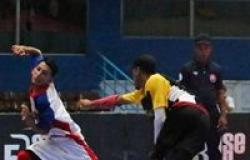Experts in international politics, officials and former Latin American presidents met in Buenos Aires in a forum called Freedom Matters, to expose the dangers of socialism in the region.
The event was organized by the Adam Smith Institute for Economic Freedom, in collaboration with Florida International University (FIU) and the Liberty Plus Foundation, which initially addressed, among other topics, the Cuban influence in Venezuela and the presence of Russia in Latin America.
The first exhibition was given by María Werlau, founder and executive director of the Archivo project Cuba.
Werlau explained the origins, evolution and expansion of the Cuban model in the region and developed several theories in his book “Cuba’s intervention in Venezuela”, which has more than 800 sources that confirm that Fidel Castro managed to penetrate different areas of strategic importance of the oil country over the years.
Screenshot 2024-04-26 at 9.42.25AM.png
“They were the ones who opened the doors to China, Russia and Iran. With economic and military presence and support, Fidel manipulated Chávez and then chose Nicolás Maduro to maintain his recipe in Venezuela,” said the researcher and academic.
During his presentation, he denounced that Havana deployed its intelligence and propaganda apparatus and mentioned the training of many young Venezuelans in Cuba, the creation of militias, collectives and paramilitary groups.
“This was all part of a big plan. Also how Cuba controlled communications and the Venezuelan armed forces,” she described.
For his part, Venezuelan journalist Orlando Avendaño supported Werlau’s statements, explaining that Fidel Castro supported the communist guerrillas in Venezuela and that there was covert financing.
“The communist leaders financed by Cuba became intellectuals, leaders of the left who began a process of indoctrination. The subversive groups began to form cadres with young people who had potential, willing to enroll in the process of struggle: they were motivated by class discourse and were susceptible to doctrine,” Avendaño said.
#Cuba






